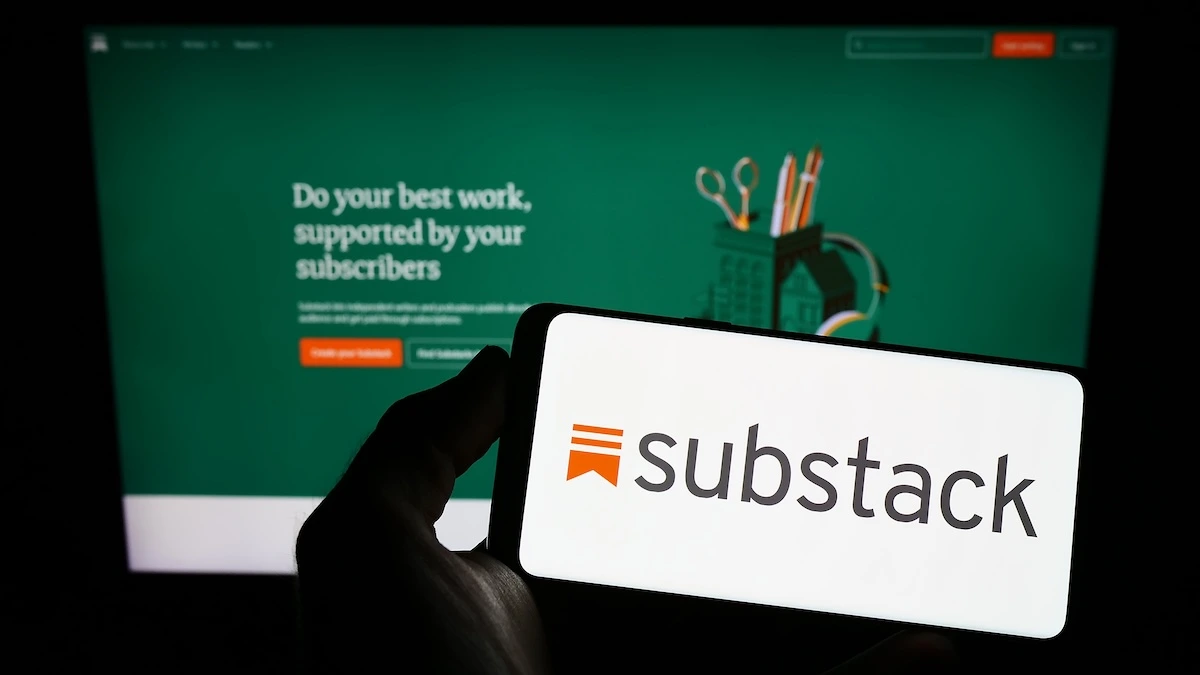#cybersecurity
#cybersecurity
[ follow ]
#data-breach #agentic-ai #personal-data #deutsche-bahn #ai #digital-transformation #ransomware #incident-response
fromTechCrunch
7 hours agoInside the story of the US defense contractor who leaked hacking tools to Russia | TechCrunch
Peter Williams, a former executive at U.S. defense contractor L3Harris, was sentenced on Tuesday to 87 months in prison for leaking his former company's trade secrets in exchange for $1.3 million in crypto between 2022 and 2025. Williams sold the exploits to Operation Zero, which the U.S. government calls 'one of the world's most nefarious exploit brokers.'
Information security
Information security
from24/7 Wall St.
8 hours agoFortinet Is Down 28% YTD, But Its Free Cash Flow Just Hit a Record $2.21 Billion
Fortinet demonstrates strong financial fundamentals with record free cash flow of $2.21 billion and 16% billings growth, while Sovereign SASE technology positions the company for significant market expansion despite recent stock decline.
fromNieman Lab
11 hours agoWhy "magic links" and passcodes are taking over news logins
Passwords get hacked all the time, but they can't be hacked if they don't exist...this allows a small team like 404 to spend less time managing security administration, and more time investing in bringing you stories you care about.
Privacy technologies
Information security
fromFortune
12 hours agoNearly two-thirds of companies have lost track of their data just as they're letting AI in through the front door to wander around | Fortune
Only 34% of organizations know where their data resides, creating critical security vulnerabilities as AI systems gain broad access to enterprise networks without adequate controls.
from24/7 Wall St.
17 hours agoPANW Is Down 19% But Its AI Security Bet May Change That
Headline numbers were solid: revenue grew 15% year-over-year to $2.59 billion, adjusted EPS of $1.03 beat expectations, and next-generation security ARR jumped 33% to $6.33 billion. But management trimmed its full-year profit outlook due to acquisition costs, and Q3 EPS guidance missed expectations, sending shares down 5-7% in after-hours trading.
Information security
Information security
fromThe Hacker News
18 hours agoDefense Contractor Employee Jailed for Selling 8 Zero-Days to Russian Broker
An L3Harris defense contractor employee sold eight zero-day exploits to Russian broker Operation Zero for millions in cryptocurrency, receiving a seven-year prison sentence for theft of trade secrets.
fromFuturism
3 days agoAI Is Destroying Grocery Supply Chains
Whole Foods shelves sit empty after a data breach shut down its wholesale distributor. Meat packers working for JBS Foods are paralyzed as an $11 million ransomware attack takes out their processing facilities. Some 2.2 million workers at Stop & Shop and Hannaford have their personal data exposed as the result of a cyberattack on parent company Ahold Delhaize USA. These scenarios, straight from a William Gibson novel, are becoming increasingly common in supply chains across the world.
Food & drink
Information security
fromDataBreaches.Net
4 days agoThis is how you do it: Dentist speaks out after practice hit by cyber attack - DataBreaches.Net
A dental practice's computer system was hacked, sending fraudulent invoice emails; the breach was quickly detected, halted by IT, and appears to have originated overseas.
Artificial intelligence
fromFortune
6 days ago'I'm deeply uncomfortable': Anthropic CEO warns that a cadre of AI leaders, including himself, should not be in charge of the technology's future | Fortune
Anthropic's CEO advocates stronger AI regulation, transparency, and broader oversight rather than leaving safety decisions to a few tech leaders.
fromBusiness Matters
1 week agoThe Digital Balancing Act: How Growing Businesses Can Move Faster Without Sacrificing Security
Because of this massive shift, the pressure on business owners has never been higher. Consumers today have zero patience. If your mobile application is slow, or if your website lacks the features they want, they will instantly move to a competitor. To survive and grow, a modern business must be able to create and update its digital tools incredibly fast. However, rushing to build technology introduces a terrible risk: you might accidentally leave your digital doors wide open to criminals.
Software development
Information security
fromFast Company
6 days agoGoogle's threat intel chief explains why AI is now both the weapon and the target
Generative AI systems are becoming core infrastructure and simultaneously increasing cyber risk as models become high-value targets susceptible to model-extraction and AI-enabled attacks.
Information security
fromDataBreaches.Net
6 days agoData Protection Failures on Moldovan Portals Leave Citizens at Risk - DataBreaches.Net
Moldova's government job portal exposed thousands of applicants' personal records for years through an unauthenticated, URL-indexed repository requiring only simple URL manipulation.
fromNextgov.com
1 week agoFAA launches competition to modernize aging IT portfolio
In an effort to transform this portfolio, the agency is launching a challenge to gather ideas from industry on how to move these old systems to cloud-native architectures and reduce its technical debt. According to a Tuesday notice on Sam.gov, the agency is forgoing a traditional acquisition in favor of a challenge-based approach. The multi-phase competition will allow the FAA to watch vendors perform, not just pitch.
Science
fromTheregister
1 week agoGerman train line back on track after DDoS yanks the brakes
"Deutsche Bahn has been and continues to be subject to attacks on its IT systems," the company said in an update posted hours after the initial service restoration. "The current attack is specifically targeted at DB and has occurred in waves. "The scale of the attack is considerable. Our defense mechanisms are working. We will not comment on speculation regarding the background of the attack."
Germany news
fromAol
1 week ago10 Work-From-Home Jobs That Pay at Least $110,000 a Year
Data scientists pore over data to tease out key insights. For example, they may gather data from a survey or by scraping the internet. They then develop algorithms and models to analyze data, helping their organizations craft effective business strategies. A bachelor's degree in mathematics, statistics or computer science is often required for this role. As with many tech jobs, data scientists can work from almost anywhere, including home.
Careers
Information security
fromThe Hacker News
1 week agoCybersecurity Tech Predictions for 2026: Operating in a World of Permanent Instability
Cybersecurity must be structural reinforcement ensuring operational continuity, visibility, and controlled adaptation amid continuous AI-driven threats, regulatory constraints, and geopolitical pressure.
Miscellaneous
fromLondon Business News | Londonlovesbusiness.com
1 week agoUK security services are hunting Russian agents on home soil - London Business News | Londonlovesbusiness.com
Britain's intelligence agencies actively dismantle Russian spy networks, intercept communications, disrupt cyberattacks, expel operatives, and protect dissidents through coordinated counterintelligence operations.
UK news
fromComputerWeekly.com
1 week agoBusinesses may be caught by government proposals to restrict VPN use | Computer Weekly
Limiting VPN use to under-16s risks disrupting legitimate business operations and weakening privacy and cybersecurity protections without clear carve-outs or implementation details.
EU data protection
fromEFDPO - European Federation of Data Protection Officers
1 week agoEFDPO @ Privacy Symposium Venice 2026 * EFDPO - European Federation of Data Protection Officers
Over 200 European experts will convene for a three-day forum addressing health data, AI, privacy, synthetic/anonymized data, cybersecurity, and regulatory frameworks.
fromDataBreaches.Net
1 week agoMontana hospital restores phones as cyber-related network disruptions persist - DataBreaches.Net
Livingston HealthCare in Livingston, Montana, says its phone system has been restored after a cybersecurity incident disrupted communications and led the hospital to take some systems offline, but network disruptions continue as restoration work proceeds. The nonprofit hospital said Feb. 13 that a "potential cybersecurity incident" disrupted its phone systems and network and that it temporarily took certain systems offline "out of an abundance of caution" while it assessed the situation and worked with outside experts.
Healthcare
EU data protection
fromThe Hacker News
1 week agoSafe and Inclusive ESociety: How Lithuania Is Bracing for AIDriven Cyber Fraud
Lithuania strengthens cyber resilience through a government-funded initiative coordinating universities and companies to deploy secure, market-ready digital solutions protecting citizens and critical infrastructure.
fromSecuritymagazine
1 week agoCritical Thinking Erosion: A Hidden Threat to Security Career Resilience
Organizations traditionally approach security risk through a narrow lens, often equating "security" primarily with cybersecurity. While cybersecurity is critically important, it represents only one subset of a much broader security landscape. Cybersecurity focuses on the protection of technologies that collect, store, process and transmit data. By contrast, security-related risk encompasses all forms of loss arising from the failure to protect organizational assets.
Information security
Privacy professionals
fromDataBreaches.Net
1 week agoNevada unveils new statewide data classification policy months after cyberattack - DataBreaches.Net
Nevada implemented a four-tier data classification policy requiring agencies to categorize data as public, sensitive, confidential, or restricted, defaulting to the stricter classification if unclear.
fromTNW | Eu
1 week agoMunich 2026: A security conference where tech isn't an afterthought
The 62nd Munich Security Conference opened on 13 February 2026 in Munich, Germany, and this year's gathering feels different from past editions. For decades, Munich was about jets, troops, and treaties. Today, cyber and AI are no longer peripheral; they are part of the architecture of security itself. Cyber risks, digital infrastructure, and emerging technologies like AI now sit alongside tanks and treaties on the agenda as European leaders try to make sense of a world where digital threats and geopolitical tensions are deeply intertwined.
Miscellaneous
fromNextgov.com
1 week agoCISA to furlough most of its workforce under impending DHS shutdown
A likely partial government shutdown after Friday would impair the Cybersecurity and Infrastructure Security Agency's operations, leading to diminished capabilities in critical areas including cyber response, security assessments, stakeholder engagements, training exercises and special event planning, a top official said this week. CISA would furlough a majority of its workforce and just one-third would remain on the job under shutdown conditions, agency acting director Madhu Gottumukkala told House appropriators on Wednesday.
US politics
fromTheregister
1 week agoGoogle: China's APT31 used Gemini to plan US cyberattacks
A Chinese government hacking group that has been sanctioned for targeting America's critical infrastructure used Google's AI chatbot, Gemini, to auto-analyze vulnerabilities and plan cyberattacks against US organizations, the company says. While there's no indication that any of these attacks were successful, "APT groups like this continue to experiment with adopting AI to support semi-autonomous offensive operations," Google Threat Intelligence Group chief analyst John Hultquist told The Register. "We anticipate that China-based actors in particular will continue to build agentic approaches for cyber offensive scale."
Information security
Information security
fromSecurityWeek
2 weeks agoNevada Unveils New Statewide Data Classification Policy Months After Cyberattack
Nevada implemented a four-tier data classification policy—public, sensitive, confidential, restricted—to standardize state data privacy and assign agencies responsibility for classification and compliance.
Information security
fromTechCrunch
2 weeks agoDOJ says Trenchant boss sold exploits to Russian broker capable of accessing 'millions of computers and devices' | TechCrunch
A former Trenchant executive stole and sold eight hacking tools enabling potential global surveillance and cyberattacks, pleaded guilty, and faces prison, fines, and restitution.
fromDigiday
2 weeks agoIn Graphic Detail: AI licensing deals, protection measures aren't slowing web scraping
New data is reinforcing a structural shift in how AI systems access publisher content: AI models are increasingly scraping publisher content, regardless of bot-blocking measures or content licensing deals meant to control usage, improve attribution or drive referral traffic. New research from analytics firms and bot-tracking companies shows AI tools are increasingly crawling publisher sites as inputs for AI-generated summaries and training, while sending back only limited referral traffic.
Artificial intelligence
Artificial intelligence
fromHarvard Gazette
2 weeks agoWorried about how AI may affect foreign policy? You should be. - Harvard Gazette
Governments adopting AI face significant cybersecurity vulnerabilities and require oversight, regulation, and international cooperation to balance benefits and prevent misuse.
Information security
fromSecurityWeek
2 weeks agoRSAC Releases Quantickle Open Source Threat Intelligence Visualization Tool
Quantickle is an open-source, browser-based network graph visualization tool for manual threat analysis, offering customizable visualizations, imports/exports, and REST API integrations.
Business
fromBusiness Insider
2 weeks agoSalesforce is replacing 5 high-profile leaders who have left since December with 6 new execs
Salesforce appointed six new leaders and promoted internal executives to fill departing roles, reallocating responsibilities across security, marketing, architecture, Slack, and AI services.
Artificial intelligence
fromsfist.com
2 weeks agoSome Waymo Robotaxis Get Assistance from Remote Workers in the Philippines When Stuck
Waymo uses remote workers, including in the Philippines, to provide guidance to robotaxis during difficult situations, raising safety, cybersecurity, and job-displacement concerns.
Artificial intelligence
fromFuturism
2 weeks agoIt Turns Out Waymos Are Being Controlled by Workers in the Philippines
Waymo uses overseas human operators (including in the Philippines) to provide guidance to self-driving vehicles, raising safety and cybersecurity concerns after a recent robotaxi incident.
Artificial intelligence
fromTNW | Events
2 weeks agoTechEx Global returns to London with enterprise technology and AI execution
AI is shifting from providing answers to executing tasks autonomously in enterprises, with practical deployments, governance focus, and integration alongside cybersecurity and edge computing.
Information security
fromSecuritymagazine
3 weeks agoHow to Protect Organizations During the Winter Olympics, According to CISOs
Cybercriminals will exploit the Winter Olympics via phishing, impersonation, API misuse, compromised credentials, and trusted-access abuse while security teams prioritize availability.
Miscellaneous
fromSecurityWeek
2 weeks agoItaly Averted Russian-Linked Cyberattacks Targeting Winter Olympics Websites, Foreign Minister Says
Italy foiled Russian-origin cyberattacks against foreign ministry sites, Winter Olympics websites, and Cortina hotels while deploying 6,000 security officers for the Games.
fromBusiness Matters
3 weeks agoBobby Acri: What Threat Detection Looks Like in a Large Organisation
Born on 17 May 1991 at Evanston Hospital, Bobby grew up on Chicago's North Shore. He attended Hubbard Woods Elementary, Washburne Middle School, and New Trier Township High School. Early on, he gravitated towards how systems behave under pressure, not just how they look when everything is running smoothly. He built that mindset through computer science coursework, networking classes, and hands-on tech support for school events.
Information security
fromTelecompetitor
3 weeks agoAI adoption among telcos may taper off in 2026: Report
STL Partners predicts one AI-related growth area among telcos but warns of a slower adoption or pullbacks in three others. First, the AI optimism: Telcos will increasingly adopt voice-based AI, analysts believe. Already, some of the biggest global telcos are using embedded voice assistance in AI channels for enterprise customers. In 2026, telcos are likely to adopt voice technologies for customer calls as well. Immediate benefits could include live translation and integration of digital assistance services.
Artificial intelligence
Brooklyn
fromBrooklyn Eagle
3 weeks agoPhone pickpockets hit Brooklyn concerts as cities worldwide report surge in phone thefts
Phone thefts at Brooklyn concert venues have surged, with stolen devices often resold internationally—especially to China—creating high financial value and severe security risks.
Artificial intelligence
fromArs Technica
3 weeks agoThe rise of Moltbook suggests viral AI prompts may be the next big security threat
Self-replicating prompts ("prompt worms") can propagate across networks of AI agents by exploiting their instruction-following behavior, risking rapid, widespread disruption similar to historical worms.
Artificial intelligence
fromFortune
3 weeks agoMeet Matt Schlicht, the man behind AI's latest Pandora's Box moment-a social network where AI agents talk to each other | Fortune
A public, chatbot-only platform called Moltbook exposed thousands of open-source AI agents, revealing capabilities, openness, and significant cyber-risk concerns.
fromTNW | Eu
3 weeks agoEurope's not-so-dry January: Unicorns and a new tech identity
Every January, millions take on Dry January , a ritual of restraint and resetting after the holiday season. If that's the benchmark for kicking off the year with moderation, Europe's startup ecosystem clearly didn't get the memo. In the opening weeks of 2026, the region saw five startups join the unicorn club, crossing the $1 billion valuation mark across sectors as varied as cybersecurity, cloud optimisation, defence tech, ESG software, and education technology.
Startup companies
fromSecurityWeek
3 weeks agoJapan, Britain to Boost Cybersecurity and Critical Minerals Cooperation as China's Influence Grows
Japan and Britain agreed Saturday to accelerate cooperation on cybersecurity and the supply of critical minerals, as China's influence grows in the region. British Prime Minister Keir Starmer said his visit to Japan comes at a time "when geopolitical, economic and technological shocks are literally shaking the world." Starmer's overnight Tokyo visit comes on the heels of his trip to Beijing, where he and Chinese President Xi Jinping agreed to seek a long-term, stable "strategic partnership."
World news
[ Load more ]

























